Business Essentials April 2018 Edition
Dear Esteemed Member,
It is no longer news that Government is aggressively implementing tax compliance drive as a means to increase its revenue base and reduce dependence on proceeds from oil. Our April 2018 edition, therefore, placed a premium on ways and means for the Enterprise to stay on the side of the law on Tax compliance matters.
In our advocacy feedback, we shared recent developments on the new Lagos State Land Use Charge Law for your information. We also uploaded an article from the International Labour Organisation (ILO) on “Skills and the Future of Work”, which we believe would be of great benefit to you.
Our regular Law Report Review, Upcoming Learning & Development programmes and other activities at the Secretariat were not left out.
Have a pleasant reading.
Timothy Olawale
Editor
In this Issue:
- Tax Compliance Challenges of Today: Staying on the side of the Law
- General Circular: Recent Update On Land Use Charge Law Of Lagos State
- ILO/IOE News: Skills and the Future of Work
- PICTORIAL: 2018 Annual NECA’s Retreat of Technical Committees
- Law Report Review / Legal Opinion: Judgment of the National Industrial Court: Application for Joinder.
- Upcoming Meetings of various Technical Committees
Tax Compliance Challenges of Today: Staying on the side of the Law
Focus of Nigerian tax system is revenue generation to finance government expenditure.
- 2018 Expected Revenue is N6.61 trillion
- 2018 Expected Tax Revenue:
- Oil Revenue – N2.442 trillion
- VAT – N208 billion
- CIT – N794 billion
- Customs & Excise – N325 billion
- Share of tax amnesty – N88 billion
- Total Government Expenditure Budget for 2018 is N8.612 trillion.
| Key Tax legislations, Deadlines and Penalties for Default and Tax Rates | ||||
| Tax type | Applicable legislation | Deadline | Penalties for
non-compliance |
Tax Rates |
| CIT | Companies Income Tax Act, Cap C21, LFN 2007 (as amended) (CITA) | New companies: Earlier of eighteen (18) months from the date of incorporation or within six months after the end of the first accounting year.
Old/existing companies: Within six months from the end of the accounting year end. |
Failure to submit returns attracts ₦25,000 for the first month of failure and ₦5,000 for each subsequent month of failure. | 30% of taxable profit |
| TET | Tertiary Education Trust Fund (Establishment, etc.) Act, 2011 | 2% of assessable profit | ||
| ITL | National Information Technology Development Act (Applies to telecommunications and cyber companies, internet services providers, banks and insurance companies) | Late payment attracts 10% penalty while interest is charged at 19%/annum. | 1% of profit before tax (where turnover exceeds N100m) | |
| CGT | Capital Gains Act, Cap C1, LFN 2007 (CGTA) | Companies: Within 6 months from the company’s accounting year-end, along with the CIT returns.
Individuals: On or before 31 March, along with PIT returns. |
Same as with CIT and PAYE. | 10% of capital gains |
| VAT | Value Added Tax Act, CAP V1, LFN 2007 (VAT) | Not later than the 21st day of the month following that in which the transaction (purchase or supply) occurred. | Failure to submit VAT returns – ₦5,000 for each month in which the failure continues.
Failure to remit – 5% of the amount in default plus interest at 19% per annum. |
5% of income from vatable goods/services |
| WHT | Companies Income Tax (Rates, etc., of tax deducted at source (Withholding tax)) Regulations 1997 (WHT Regulations) | FIRS: Not later that the 21st day of the month following that in which deductions were made or credit granted.
SBIR: Within 30 days from the date the amount was deducted or the time the duty to deduct arose. |
FIRS: 10% of the amount in default, plus interest at 19% per annum.
SBIRS: 10% of the amount in default plus interest at the ruling commercial rate usually 21% per annum. |
Varies: 5%, 7.5% or 10% |
| SD | Stamp Duties Act, CAP S8, LFN 2007 (SDA) | Paid at the point of executing the transaction. | Varies according to type of instrument/transaction. | Rates depend on the nature of the instrument/transaction |
Compliance responsibility of Taxpayers includes the following:
- Registration of Taxes (TIN)
- Make accurate declarations
- File tax returns by statutory due date
- Payment of taxes as at when due
- Safekeeping of tax receipts and documents filed.
While recent developments in Tax Compliance include the following:
- As part of steps to enhance voluntary compliance, boost revenue generation and improve ease of doing business, the FIRS embarked on Integrated Tax Administration System (ITAS) Project to automate all tax administration processes.
- E-platform is an offshoot of the ITAS project and FIRS has commenced enforcement of e-transactions with taxpayers.
- The Federal Inland Revenue Service (FIRS) recently introduced six electronic tax services with the aim of improving transparency and ease of compliance with tax processes by taxpayers. The services are:
- e-Registration: for registration of new taxpayers with FIRS for the various taxes
- e-Stamp Duty: for payment of stamp duties on qualifying documents
- e-Tax Payment: for payment of all Federal Government taxes and levies using the Nigeria Inter-Bank Settlement System (NIBSS), Remita or Interswitch platforms
- e-Filing: taxpayers can now file tax returns through the FIRS’ Integrated Tax Administration System
- e-Receipt: for receiving and verifying e-receipts generated for taxes paid through the new e-Tax Payment
- e-TCC: taxpayers can now apply for, receive and verify the authenticity of their electronic tax clearance certificates (e-TCC)
Recurring Tax compliance issues facing member-companies includes the following:
- Filing tax returns
- Commencement, cessation, and change of accounting date
- Harnessing tax incentives, example of Pioneer Incentive
- Tax evasion and tax avoidance
- Excess dividend tax
- Customs Area/Non-Customs Area, etc
Suggested Way Forward:
- Continous Tax Training: There is the need for member-companies to stay abreast of changing developments in tax-related matters and how it affects their organisations.
- E-Filing: Embrace the electronic process to reduce the burden of compliance
- Tax process management: Ensure that organisations put in place robust internal tax policy, processes and timeline for tax review, payment and filing
- Robust records keeping: This can save the taxpayer millions of Naira in penalties.
“In this world nothing is certain but death and taxes” Benjamin Franklin (1723-1790)
Being paper presented by Mrs. Titilayo Fowokan (Dangote Group) at 2018 NECA’s Annual Retreat of Technical Committees
Recent Update on Land Use Charge Law of Lagos State
As you are well aware, your Association had worked assiduously to protect the interest of organised businesses against the obnoxious tax regime imposed through the new Lagos State Land Use Charge Law. We had instituted sustained media campaigns, mobilized the Organised Private Sector (OPS) in the quest, engaged government through the Honourable Commissioner for Finance and also attended a couple of public fora on the matter.
The Lagos State Government eventually bowed to the voice of reason and returned the Law to the House of Assembly for an amendment to incorporate the following concessions we had negotiated with it:
- 50% discount on invoiced value for 2018 remains as earlier announced by the government;
- From 2019, the new base rates and discount would be as follows:
- Discount –50% (permanent)
- Base Rate for commercial property – reduced from 0.761% to 0.4560%
- Base Rate for industrial/manufacturing concerns – reduced from 0.255% to 0.230%
- Assessed value would be determined from time to time by appropriate professional institution (within a period of 3-5 years). The outcome of and basis of assessment would be published from time to time.
- Verified vacant lands and unoccupied properties would be exempted from Land Use Charge.
- A total waiver of penalties for delayed payments in 2018
In the light of the foregoing, we encourage member-companies to pay the 2018 Land Use Charge rate based on the 50% concession granted on the invoiced value.
Skills and the Future of Work
As transformative change sweeps through the world of work, investments in skills’ development and training systems are becoming more important than ever. The International Labour Organization is playing a leading role in identifying forward-looking skills development policies that will help governments, employers and workers alike adapt to the new realities of the future of work.
Technological innovation, globalization, climate change, shifts in the organization of work through platform-based economies, digital technologies and artificial intelligence are rapidly transforming the world of work. These transformational changes have major implications for skills and training that require new and more robust policies to train new entrants into the labour market to match market demands.
What is more, they will also necessitate an increase in investments in the training and reskilling of workers by enterprises. At the same time, workers will have to proactively engage in upgrading their skills in order to remain employable. The acquisition of the skills required in a changing labour market is critical to continuing economic growth and prosperity.
Meeting this challenge will not be easy. The mismatch between the current skills and the skills required for newer jobs is creating economic and social imbalances. Already, there are growing signs that skills training is out of step with the demands of local economies.
Education and training institutions will have to adjust to these new realities. The need to integrate basic educational and digital skills that link science, technology, engineering, and mathematics—the so-called STEM skills—are increasingly becoming a minimum to embrace jobs in new technology areas. A combination of these new skills with traditional TVET (Technical, Vocational and Education Training) skills would better equip young people to position themselves as market-ready to take on new jobs and prepare to change jobs in a matter of few years.
The rapidly changing employment landscape will also increase pressure on education and training systems to better develop core work skills or “soft skills” – such as problem-solving, teamwork, communication and change readiness, that allow workers to transition between jobs and occupations. Soft skills can play as big a role in career advancement as training or education.
As some jobs disappear and new ones are created, people, especially young entrants to the labour markets may find themselves competing with, or being replaced by robots, and will need to have the agility to learn to do things that machines can’t in order to remain employable.
A number of countries have already developed skills systems that respond to shifts in labour market demands. Switzerland, for example, has a dynamic apprenticeship programme that forms an integral part of the country’s educational system. By equipping young people with the capabilities required by the labour market and exposing them to the use of new technologies, youth unemployment has been kept low while a large pool of new talent becomes available to the country’s economy.
As production shifts from labor-intensive to knowledge and skills-based work, new expertise in such areas as digital, technical, commercial, and management will be required to immediately meet and adopt new workplace trends. As transformative change buffets the future of work, investment in skills and training will be key to a successful transition.
Law Report Review / Legal Opinion: Judgment of the National Industrial Court: Application for Joinder
Oladayo Olatunji & Ors vs. Uber Technologies System Nigeria Limited vs. Taxify Technology Nigeria Limited (party seeking to be joined as the second defendant) – unreported Suit No.: NICN/LA/546/2017
Facts
The claimants filed the suit by way of an originating summons, praying for the following reliefs:
(1) A declaration that the claimants and members of their class are employees of the defendant.
(2) A declaration that by virtue of nature of the defendant’s control over the claimants and members of their class, they are not meant to be classified as independent contractors.
(3) A declaration that the defendant is liable for the acts of the claimants and other members of their class while acting in the course of his employment with the defendant.
(4) An order mandating the defendant to provide all relevant benefits, including but not limited to health insurance, pensions and other benefits to the claimants and members of their class.
(5) Perpetual/Injunction restraining the defendant, its officers, from further denying liability for the claimants’ acts done in the course of their employment with the defendant.
In supporting these reliefs, the claimants posed the following questions for determination:
(1) Whether or not considering the circumstances of the facts of this case, the claimants and members of their class are independent contractors of the defendant.
(2) Whether or not by the interpretation and construction of “worker” under section 91 of the Labour Act, the claimants and members of their class are employees of the defendant.
(3) Whether or not the employment relationship between the claimants and the defendant has created an agency relationship.
(4) Whether or not the defendant as the claimants’ employer ought to be vicariously liable for the claimants’ malfeasance.
While the hearing of the case was yet to commence, the party seeking to be joined as the second defendant filed a motion on notice for joinder. Affidavits were filed and the parties addressed the Court on points of law. The defendant reacted by filing a written address on points of law in opposition to the application for joinder.
JUDGMENT
- The issue that brought the claimants to Court was to determine whether they are independent contractors or employees in their relationship with the defendant, who incidentally is in the line of same business as the party seeking to be joined as a defendant in this suit, Taxify Technology Nigeria Limited. The claimants, in this case, sued for themselves and as representing other Uber Drivers in Nigeria in a class The court found that in the affidavit in support of the motion for joinder, the applicant indicated that the 1st claimant was also a registered driver with it and has even completed 72 trips on the software application of the party seeking to be joined.
- The court noted that the defendant had opposed the application for joinder on the grounds that the four conditions were laid down for the grant of an application for joinder in Green v. Green [1987] 3 NWLR (Pt. 61) 480 had not been fulfilled. However, the court found that more recent case law authorities did not insist on the presence of those four conditions before a party can be joined. Hon Justice Aloma Mariam Muktar had in the leading judgment in The Reg. Trustees of National Association of Community Health Practitioners of Nigeria & ors v. Medical and Health Workers Union of Nigeria & ors [2008] LPELR-3196(SC); [2008] 1 SC (Pt. III) 1; [2008] 34 NSCQR (Pt. I) 321; [2008] All FWLR (Pt. 412) 1013 SC held thus:
…an applicant who desires to be joined as a party to a suit is required to show that he will be bound by the ultimate result of the action, as the orders in the judgment will affect it, and its interest will be prejudiced if it is not joined. Another test is that the action may not be completely settled without the party sought to be joined as a party in the suit.
Furthermore, in the case of Ibigbami v. Military Governor, Ekiti State [2004] 4 NWLR (Pt. 863) 243, the court laid down, not a four-prone test but a two-prone test, in determining whether a party is to be joined or not. It held that: “Joinder of parties, whether as plaintiffs or defendants, it is subject to two conditions: (i) The right to relief must in each case be in respect of or arise out of the same transaction or series of transactions. (ii) There must be some common question of law or fact.”
The Court even went on to state “…it is generally the law that the court cannot force a defendant on an unwilling plaintiff who has no case against that defendant. Yet there must be situations where a defendant can insist that he be allowed to join the fray against the plaintiff to protect himself against the ill effect of the relief that the plaintiff might obtain from the court.”
- The National Industrial Court noted the points made above, as follows:
- A person should not be joined as a defendant against whom there is no case by the plaintiff.
- Secondly, the argument of the defendant that the applicant did not meet the 4 requirements set out in Green v. Green must, thus, be rejected given that The Reg. Trustees of National Association of Community Health Practitioners of Nigeria & ors v. Medical and Health Workers Union of Nigeria & ors, a case latter in time, has laid down a two-prone test.
- Thirdly, the person to be joined as a party would be bound by the result of the action.
- Fourthly, the case of Adefarasin v. Dayekh [2007] 11 NWLR (Pt. 1044) 89 emphasized the factors of being bound by the result of the action, avoidance of multiplicity of suits, the need to effectually and completely adjudicate the matter at hand, the need not to prejudice the interest of the party to be joined and the fact that it is just and convenient to join the said party as the considerations the Court must consider before joining a party to a suit.
- The NICN found that if the party seeking to be joined is not joined, there was a strong likelihood that once the instant suit was concluded, another involving the party seeking to be joined may be in the offing, depending on the outcome of the instant suit.
- The court was satisfied that the applicant has made out a case to be joined as a defendant in the suit. Taxify Technology Nigeria Limited was, thereafter, joined as the 2nd defendant in the suit.
- The court ordered that all processes already filed and served in the matter should be served on the applicant. And all processes should be amended to reflect the fact of the joinder of Taxify Technology Nigeria Limited as the 2nd defendant in the suit.
Opinion
A critical factor for joinder, which Employers should note is the fact that there must be some common question of law or fact.”
PICTORIAL: 2018 Annual Retreat of NECA’s Technical Committees.
Theme: Strategies for Sustainable Enterprise Growth
- Cross section of participants at the Annual Retreat
Presentations At the Retreat
Participants benefitted from rich presentations on the following topics:
- General Theme: Strategies for Sustainable Enterprise Growth, Mr. Yaw Nsarkoh, MD, Unilever Plc
- Economy: Nigeria’s Rebounding Economy: Context, Challenges, Opportunities and Risks. Opeyemi Agbaje (CEO, RTC Advisory Ltd)
- HR/IR: Attracting and Retaining Talents: An Experiential Perspective, Mrs. Jumoke Ogundare (CEO, ARM )
- Health: Graceful Ageing without Health Liabilities; Sound Nutritional Imperatives Adedoyin Kolawole
- Finance: Tax Compliance Challenges of Today: Staying on the Side of the Law Titilayo Fowokan, Dangote Group
- Legal Matters: Regulating/Legislative Excesses and Overreaching: Options for Sustainable and Productive Interventions/Advocacy Barr. Uche Uwechia, GlaxosmithKline
- HR/IR: Transition from Two-Tier Scheme into a Single-Track Terminal Benefit Scheme, Mr. Tominiyi Oni, FrieslandCampina WAMCO Nigeria Plc
Learning and Development Programmes and Upcoming Meetings of various Expert Committees
Committee of Human Resources & Learning Experts (CHRLE)
Date: Wednesday, 16th May, 2018
Venue: NECA House, Alausa, Ikeja, Lagos
Time: 9:30am
Committee of Legal Advisers and Company Secretaries (COLACS)
Date: Thursday, 10th May, 2018
Venue: NECA House, Alausa, Ikeja.
Time: 10:00am
NECA Ibadan Geographical Group Meeting
Date: Thursday, 24th May, 2018
Venue: P& G Ibadan Office, Oluyole Estate, Ibadan
Time: 10:00am

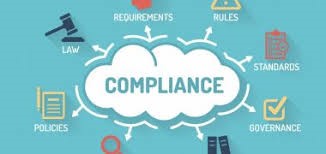
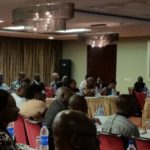

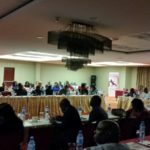
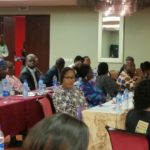

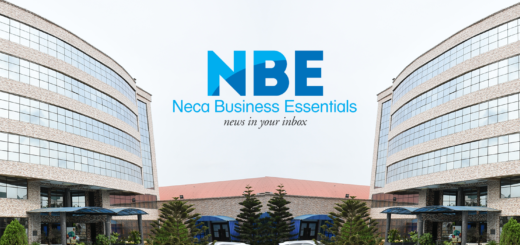



Recent Comments